Ford investment cut shows need for Brexit deal, Skates says
- Published
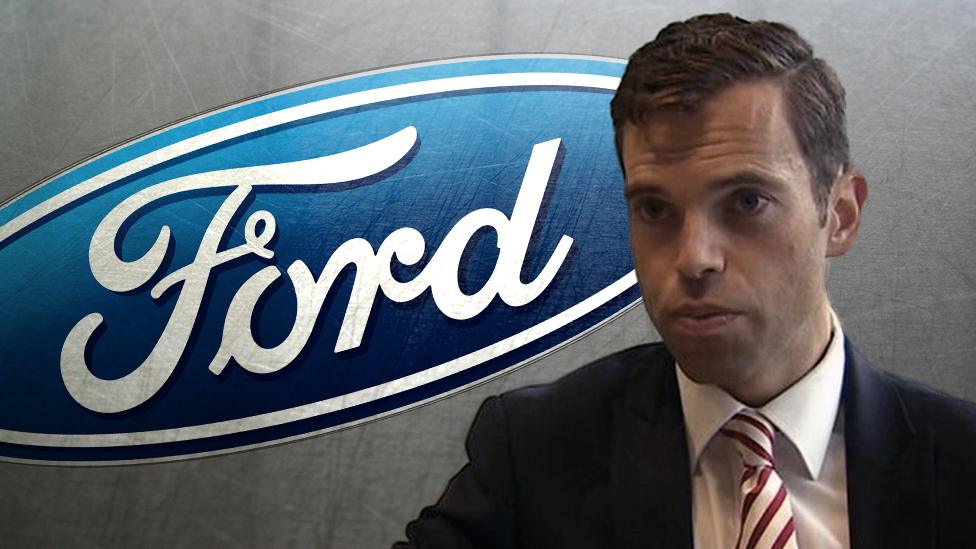
Ken Skates says Ford's investment cut highlights the challenges of Brexit
Production cuts at the Ford engine plant in Bridgend show the need for the UK to keep free trade with Europe after Brexit, the economy secretary has said.
The car giant announced plans to halve production of its new generation of petrol engines in south Wales.
Ken Skates said he wanted assurances about the security of 500 jobs which was a condition of £15m state aid.
"We want to make sure there are jobs in that plant for decades to come," he told BBC Radio Wales.
Ford said on Tuesday it would cut its investment from a planned £181m to £100m, but had no plans to reduce the 1,800-strong workforce at Bridgend.
The company's statement referred to "fluctuations" in global demand, predicting that required numbers of the new engine would be "lower than originally planned".
Industry experts say part of the problem for Ford is that the current low value of the pound has made imports more expensive.
Although Ford did not mention Brexit, Mr Skates raised it as a factor when asked about developments on Good Morning Wales.
"In order to get stability for Ford and for others in the automotive sector, what we need from the UK government is a firm commitment to access to the free market in order to create stability within the currency markets," he said.
"It's fair to say there have been many warnings since the referendum. There are opportunities in terms of exports, in terms of attracting more visitors to Wales.
"We have been presenting a business confidence plan to make sure we capitalise on the opportunities.
"But of course there are challenges, and I think this is one of many challenges that have been highlighted."
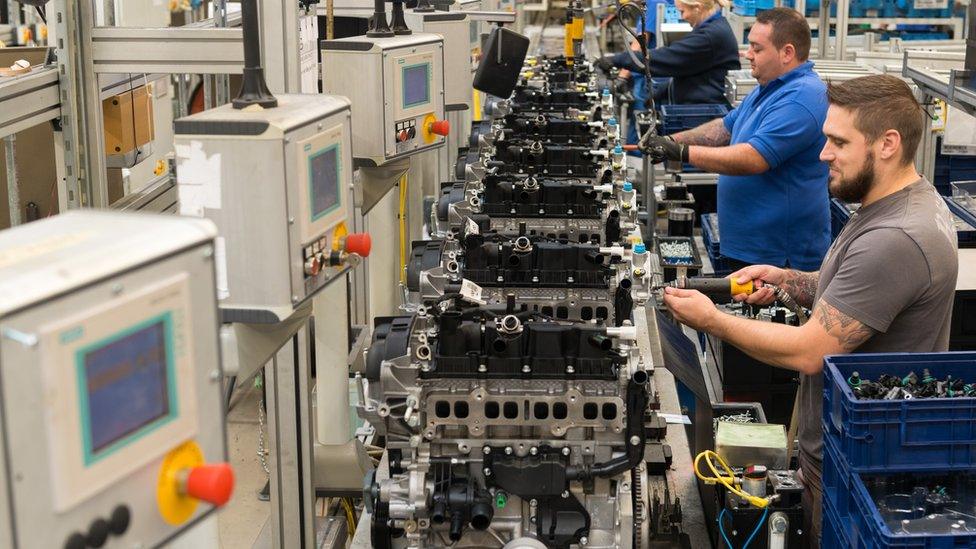
The Bridgend plant beat competition from other Ford plants in Europe for the investment
Ford's decision to scale back comes nearly a year after the deal was announced, with the then economy minister Edwina Hart saying it would "safeguard more than 750 skilled Welsh jobs for many years".
The investment - which was won against competition from Ford plants in Germany, Spain and Romania - was backed by nearly £15m from the Welsh Government.
The public money relates to the production of a new line of Dragon engines.
Mr Skates said: "Normally we expect jobs to be secured for a minimum of five years.
"I wish to speak with Ford to gain assurance that jobs will be secured for a longer period.
"We wish to know how Ford will be stimulating demand for that product globally.
"We don't just wish to secure jobs for the short and medium term - we want to make sure there are jobs in that plant for decades to come."

Analysis by BBC Wales political editor Nick Servini
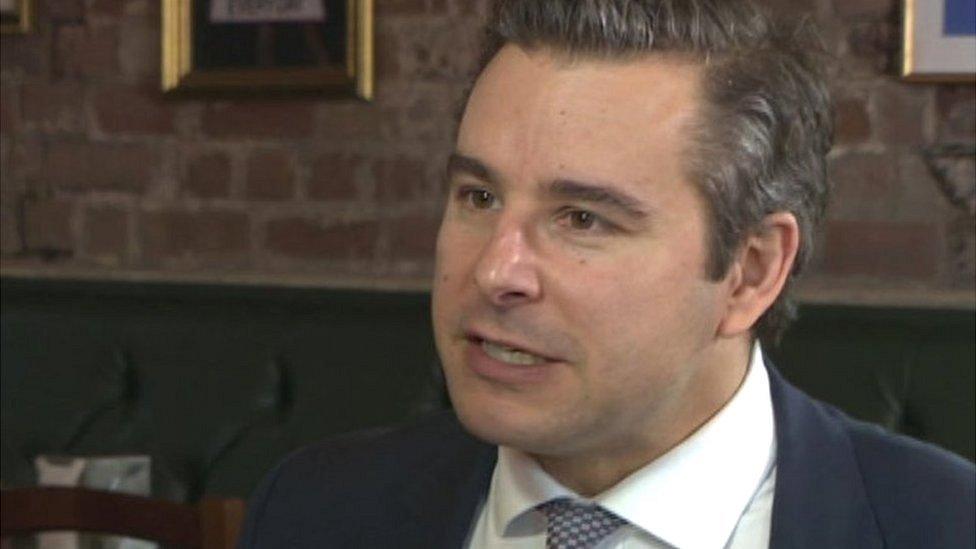
This is the first big corporate announcement in Wales since the Brexit result.
Ford and Unite say it has nothing to do with the vote, but Ken Skates danced around the issue as closely as he could when he said Ford's decision to scale back investment highlights the need for the UK to retain tariff-free trade with the rest of the EU.
His view is that everything needs to be done to try to reduce currency fluctuations, and he clearly believes that being in the single market is a way of achieving that.
The weakening of the pound since the referendum has helped those exporting but it makes imports more expensive, something which Ford has said could cause it problems in the long-term.
The economy secretary also gave some revealing details about the terms of the financial aid to Ford which in previous years would have remained firmly under wraps.
Ford will get its £15m support so long as it employs 500 people on the new Dragon engines for five years.
As things stand, it is still due to do that.

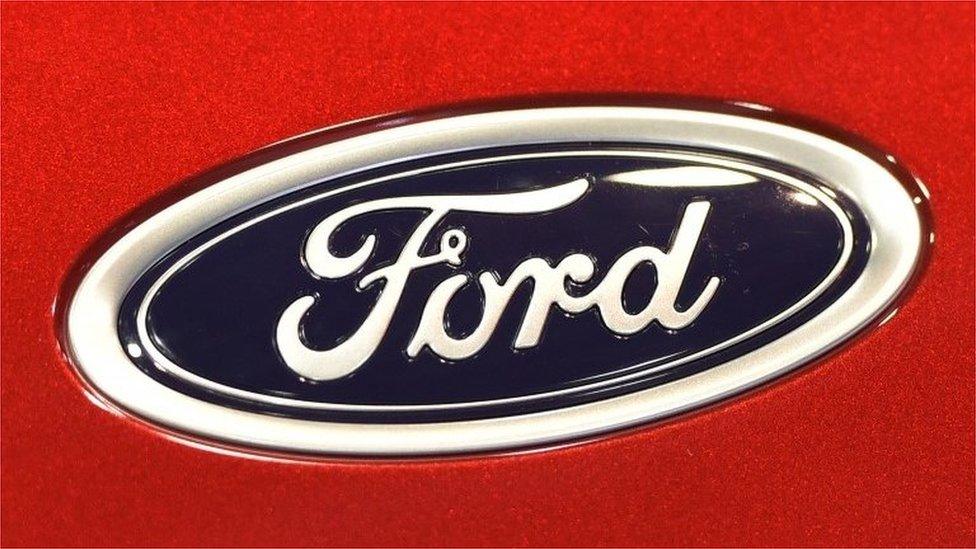
FORD TIMELINE
September 2015 Workers celebrated the news that they had secured the contract to manufacture 250,000 of the new Dragon petrol engines annually starting in 2018. It secured hundreds of jobs but it meant that Bridgend would only be making a third of the engines it does now.
September 2016 A year on and it emerges that Ford will produce 125,000 Dragon engines - only half of those previously planned - from 2018.
2018 Bridgend Ford is due to stop producing the 250,000 engines a year it makes for Jaguar Land Rover. Production of the 500,000 engines it makes for Ford models is also expected to come to an end around the same time.
- Published6 September 2016
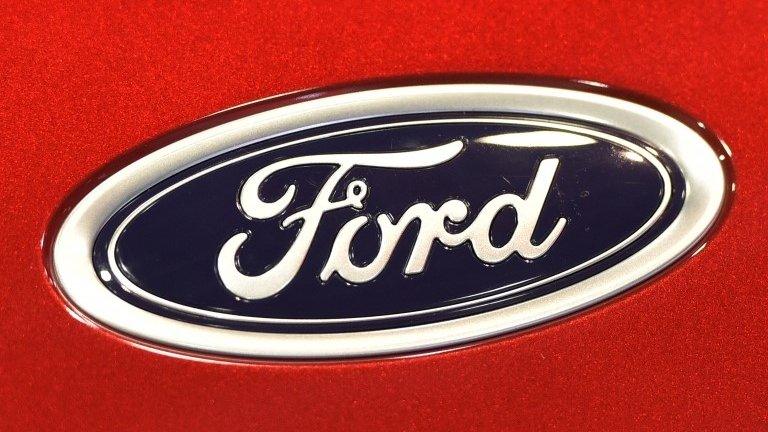
- Published25 September 2015
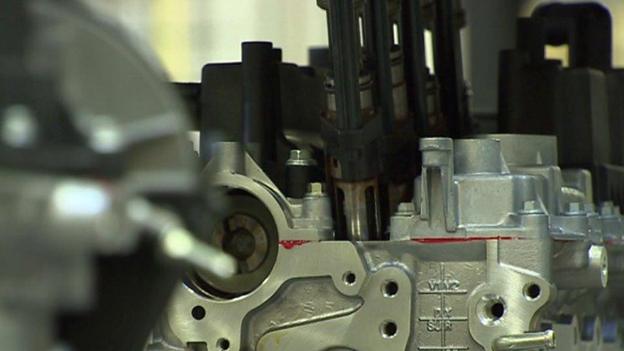
- Published5 September 2016
